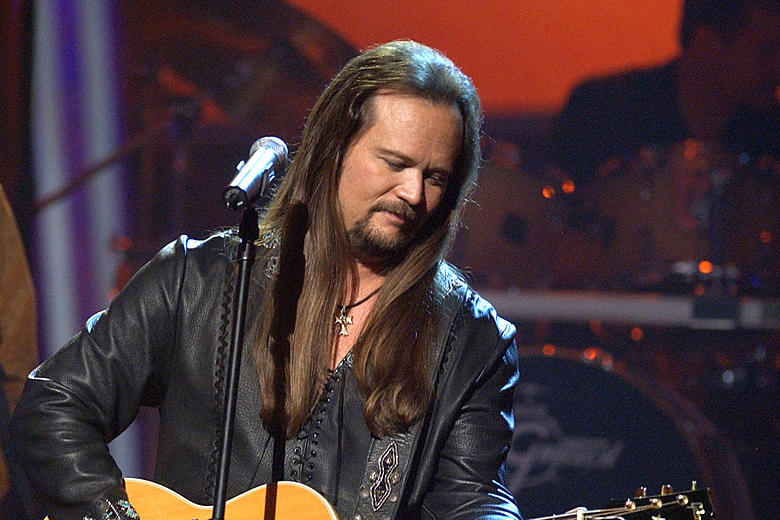
A song of heat, homage, and unrestrained energy, “Burning Love” as sung by Travis Tritt blazes with both reverence for tradition and the raw, unfiltered passion of country-rock fire.
When we speak of “Burning Love”, the history begins not with Tritt but with songwriter Dennis Linde, who penned the tune in 1972. The first recording was by Arthur Alexander, released in April that year, but it was Elvis Presley who turned it into a cultural landmark just a few months later. Elvis’s version, released in August 1972, shot up the Billboard Hot 100, peaking at No. 2, held back only by Chuck Berry’s “My Ding-a-Ling.” It became one of Presley’s final major hits, a defining anthem of late-career vitality, driven by a jubilant horn section and his unmistakable voice crying out with urgency.
Two decades later, in 1992, Travis Tritt took on the song for the soundtrack of the film Honeymoon in Vegas, a compilation filled with contemporary country and rock artists covering Elvis classics. Tritt was at the peak of his career then—already a star with platinum albums like It’s All About to Change—and he brought to “Burning Love” that unmistakable Southern rock snarl and outlaw edge. His version wasn’t a radio single, so it didn’t chart on its own, but it stands as a high-octane reminder of how the song could be bent, twisted, and reignited by a new generation of performers without losing the spark of its origin.
What makes Tritt’s rendition remarkable is how it trades Elvis’s big brass arrangements for a more guitar-driven, honky-tonk approach. The tempo, brisk and dance-hall ready, sits comfortably in the same key (D major) but gains a different grit. Where Elvis leans into swagger and showmanship, Tritt injects rawness—he sings with the urgency of a man aflame, but with that slight rasp of a road-worn troubadour. Listening closely, you can hear the overlap of two eras: the Las Vegas glitz of the ’70s and the barroom stomp of the ’90s.
The words themselves have not aged a bit: “Lord almighty, I feel my temperature rising, higher, higher, it’s burning through to my soul…”. This is the language of fever, of a love that overwhelms the senses and consumes the body. And then the unforgettable chorus: “Your kisses lift me higher, like the sweet song of a choir, you light my morning sky with burning love.” In Elvis’s hands, it was playful yet commanding; in Tritt’s, it becomes jubilant and earthy, a stomp-your-boots declaration of devotion.
For those who lived through Elvis’s release in 1972, the song may recall late-summer radios crackling with joy, a reminder that the King still had the power to thrill. For those who found Tritt’s version in 1992, perhaps through Honeymoon in Vegas or the later dance compilation The Greatest Country Dance Record Ever, it is tied to another memory—neon lights on a Friday night, couples swinging across hardwood floors, the way country music in the ’90s could make even rock ’n’ roll classics feel like they belonged on the jukebox next to George Jones and Hank Williams.
What lingers most is the universality of the song itself. A love so overwhelming it feels like combustion—whether sung by Elvis in the twilight of his reign, or Tritt at the crest of his career—is something every listener, young or old, can recall. We’ve all known that blaze: the first time someone’s kiss felt like fire, the moment love arrived like lightning, leaving the heart unsteady, trembling, alive.
Tritt’s “Burning Love” did not dominate charts, did not headline albums, and yet it remains a testament to how songs endure. Passed from one voice to another, they gather new textures, new meanings, but the flame at their center stays bright. More than fifty years since its writing, the fire still spreads—through jukeboxes, radios, film soundtracks, and the voices of fans who hum it under their breath.
In the end, Travis Tritt’s take on “Burning Love” is less about imitation than about continuation. It honors Dennis Linde’s pen, it nods to Elvis Presley’s triumph, and it carries the torch into another era. For those who hear it today, it is not just a cover—it is a bridge, a reminder of how a song can leap decades, untouched in its power to set hearts ablaze.